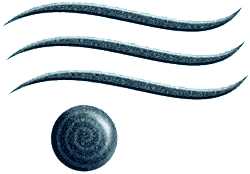

To
Contact Us, CLICK HERE
The
Basics: The Background of Hypnotherapy
Hypnotherapy has come a long way since the days of Friedrich Anton Mesmer (1734-1815), who expounded the principals of Animal Magnetism, more commonly known as Mesmerism. Mesmer believed that disease was caused by a disturbance of equilibrium in the body's "universal fluid", and that a "magnetic readjustment" of this fluid would result in a cure of the disease.
The scientific approach to hypnotherapy began in 1841 when Dr. James Braid, a Manchester (England) physician, began to use hypnosis as a form of anesthesia during surgical procedures. Meeting with a great degree of success in this approach, Dr. Braid began to explore other uses of the technique, and subsequently reported significant improvement or complete cures in cases of deafness, rheumatic disorders, and paralysis. Dr. Braid was in fact responsible for coining the word "hypnosis" from the Greek word for sleep,"hypnos".
In the late nineteenth century a dispute arose between two eminent French physicians concerning the mechanism of hypnosis and hypnotherapy. Dr. Jean Marin Charcot, a neurologist who headed the Paris school, believed that susceptibility to hypnotherapy was the result of a pathological state. Dr. Hippolyte Bernheim, head of the school of neurology at Nancy, held that susceptibility came about through suggestion, either from the hypnotherapist or from the subject themselves. Dr. Bernheim's approach, that suggestion is "the aptitude to transform an idea into an act", eventually became the foundation for the modern-day practice of hypnotherapy.
With the idea of "suggestion" well established and accepted, Myers introduced the Hypothesis of the "subliminal self", a separate but related personality below the conscious threshold. This hypothesis was further refined by several American psychologists and became known as the theory of the "subconscious mind".
In 1958 the American Medical Association approved the teaching of hypnosis in medical schools and post-graduate curricula.Today, the techniques of hypnotherapy are taught in prominent medical schools and utilized in the treatment of chronic pain, tension headaches, sleep disorders, obesity, phobias and alcoholism. Hypnotherapy is also utilized in other areas including stress management, smoking cessation, and to improve sports performance.
Herbert
Spiegel, a respected authority and practitioner in the field, has stated that
"...mainsteam medicine is still reductionist; believing in specific causes
and effects like germs and viruses. I believe that our behavior results from
an interaction of biological, psychological and social factors. They're all
important. There's more emphasis today on psychological influences on health,
what we used to call psychosomatic elements. And it's about time."
Back to top
Click Here for some Frequently Asked Questions about Hypnosis and Guided Imagery.
Links to Other Sites of Interest can be found HERE
Back to top